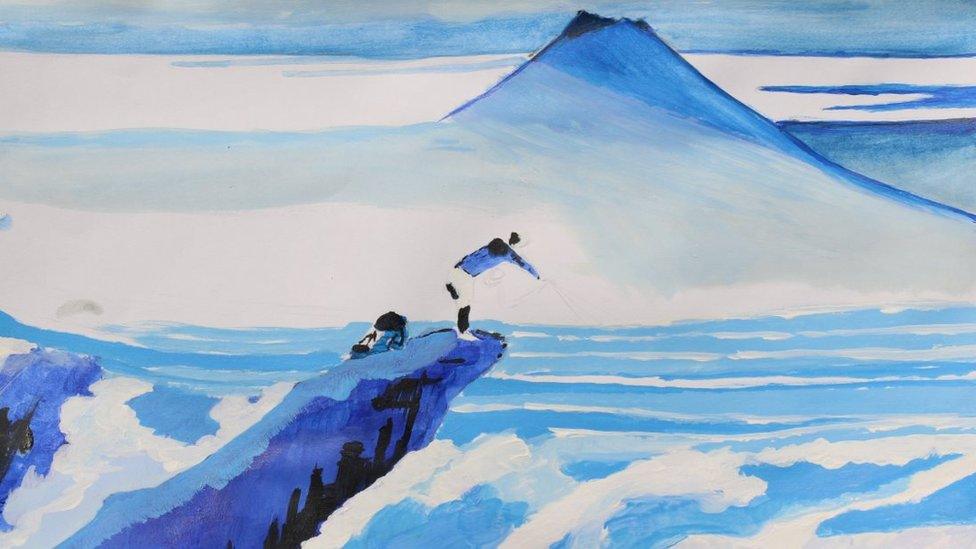'Why my brain injury gets me arrested'
- Published
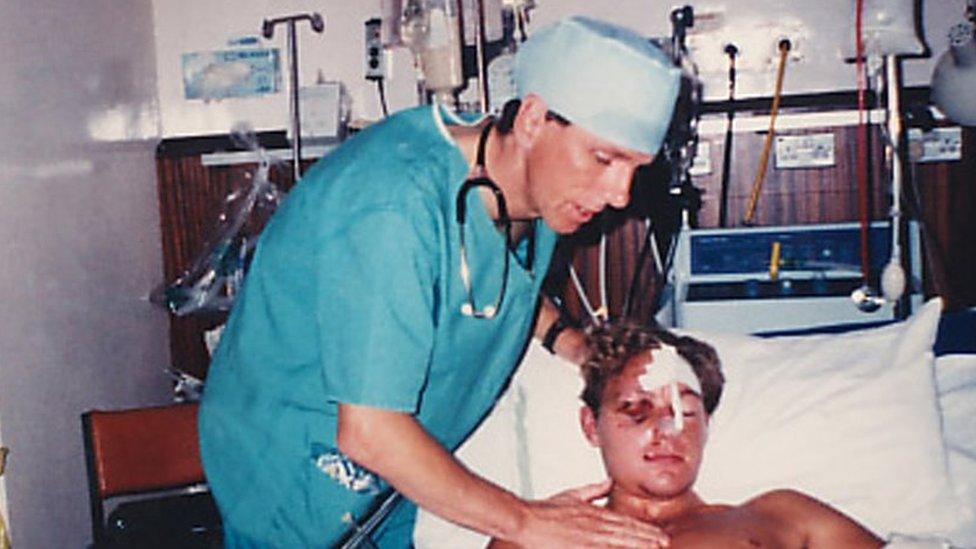
Dominic Hurley is regularly mistaken for being drunk and it has led to him getting arrested. His slurred speech and poor balance is actually a result of a brain injury caused by a moped crash while he worked abroad.
In 1994, Hurley, then 21, went on a rare night out with his colleagues. He had been studying for a degree in hotel management and was on a year's placement at a hotel near Ayia Napa in Cyprus.
The group had been out for some food and drinks but were tired and called an early end to the night. They travelled back to their accommodation on rented mopeds.
"I had the slowest one and was at the back," he says. "I must have fallen asleep or hit a pothole or lost concentration, I don't know, but I tumbled off and I wasn't wearing a helmet."
Hurley hit his head and ended up in hospital for months. His parents were told he probably wouldn't walk or talk again.
He had been in Cyprus for just seven weeks.
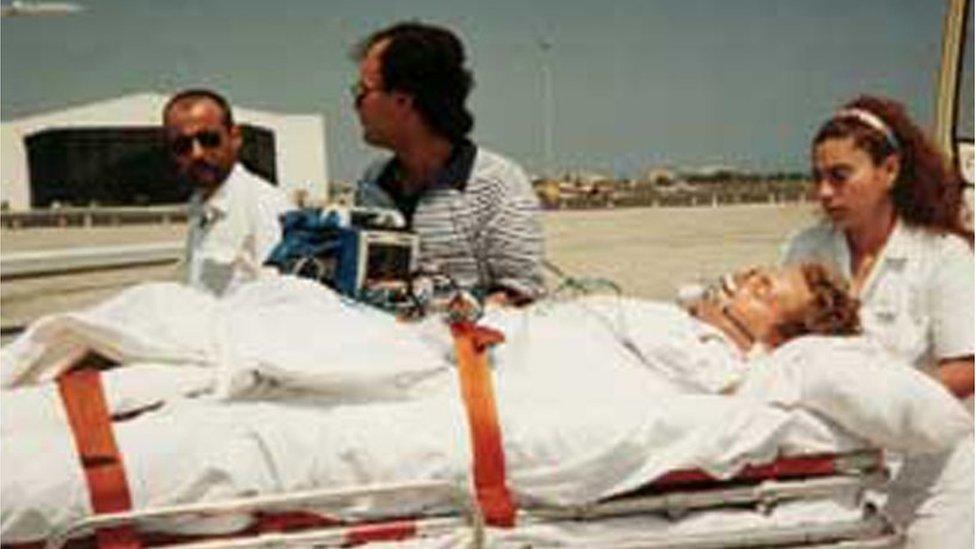
Dominic Hurley was flown back to the UK by the air ambulance days after the crash
"It totally changed me. I was in a coma for three months but I wasn't fully aware of things for at least a year.
"At 21 I had everything going in life, I was into sports, going out, and it all changed. It's like I've got two lives - I've got one until I was 21 and I've got one afterwards."
Hurley, who now lives in Rotherham, defied the doctors' expectations and did walk and talk again, but 23 years after the crash he continues to live with paralysis on his right-side and has learned to write with his left hand. His speech is slurred and he finds organising his life difficult.
His memory has also been significantly impaired. He can remember snapshots of his time in Cyprus but has a total blank of the accident and the following 12 months of recovery.
He says he can only remember "bits and bobs" from his childhood and even then he can't be sure if he's fabricated the memories from photographs.
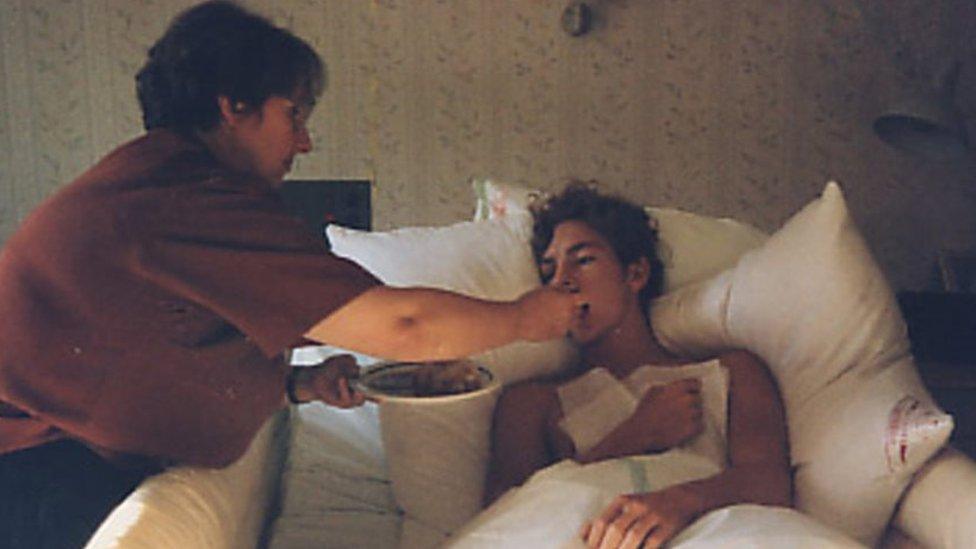
"There's no time or place to my memories. My brain and memory are like a brick wall where you throw bits of mud at it - some of it sticks, some slide off and other ones bounce off."
Other symptoms of his brain injury have got him into trouble with the law as he can appear drunk and his agitation quickly escalates.
"I am a very nice person but I've been arrested three times," he says.
The first arrest was during a trip to Torquay when he complained about a meal at an Indian restaurant. The food was "awful", he says, and had attempted to convey the point calmly to the staff.
"I tried to explain but they locked the door and said I had to pay. They phoned the police, then I had an argument with the police and I sounded drunk and I was probably stumbling a bit.
"I was thrown in the back of the van and put in a cell. It wasn't until the morning that I could explain."
The second time, Hurley was in a taxi with friends when the driver demanded payment before he would drive them anywhere.
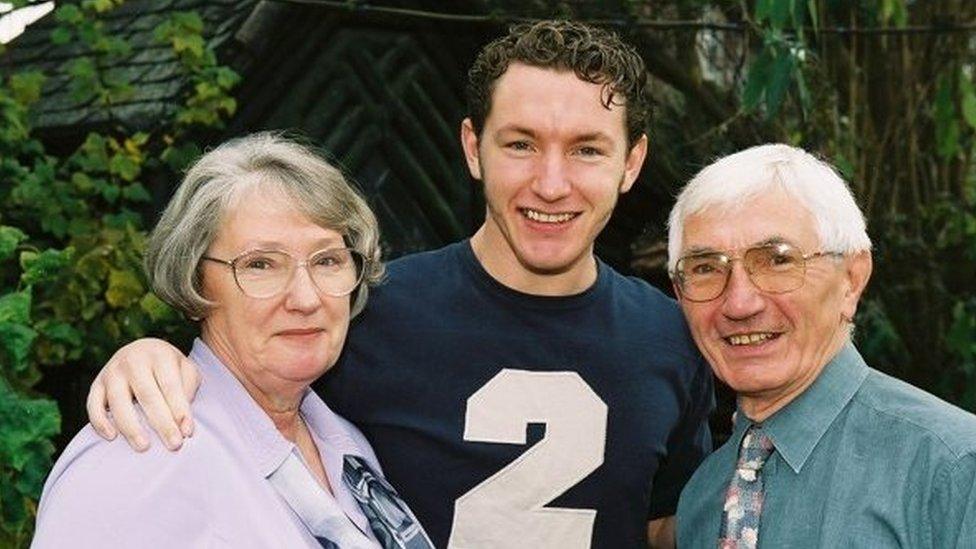
Dominic with his parents Anne and Bill
They tried to explain their friend's situation but say the police were called and Hurley was "yanked out the car" and taken into custody due to what they thought was drunken behaviour.
"They're not like police cells in The Bill or cells you see on TV," Hurley says. "There's excrement on the walls. They make my problems even worse when I'm cold and I get migraines."
He says the three arrests have seen him separated from friends, dragged from cars, and his hands forced behind his back - harsh treatment that made him feel like a "common criminal".
"Each time I was just seen as another drunk. I wasn't given much of an interview at all."
The BBC contacted the National Police Chiefs' Council but it said it could not comment on the care Hurley received.
The third time he was arrested Hurley had been in close proximity to a fight at a pub, but this time he had a trick up his sleeve.
He had been issued with a Brain Injury Identification Card, an initiative from Headway, which describes the side effects he might display.
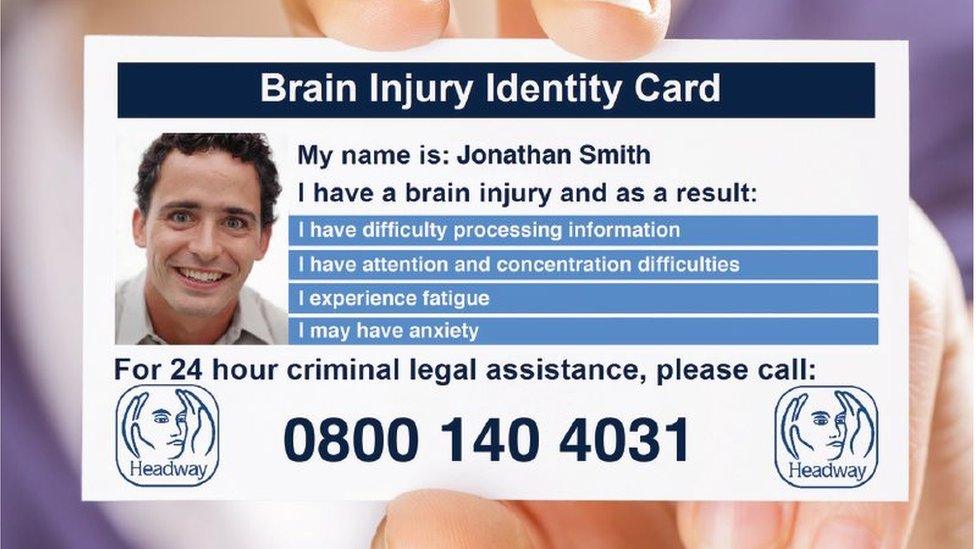
"The police went through my wallet and found it and said they'd ring my parents. It really helped because they let me out rather than keeping me in all night."
The card was launched nationally this week to help all those in a similar situation to Hurley.
Peter McCabe, chief executive of Headway, a brain injury charity, says: "Many people are assumed to be drunk as a result of having slurred speech or an unsteady gait, with attempts to explain the effects of their brain injury often being ignored."
He says the ID card aims to raise awareness within the criminal justice system and help police officers understand the situation at the earliest opportunity.
He calls it a "simple solution to a tricky conversation" and believes it also gives carriers a confidence boost to which Hurley agrees.
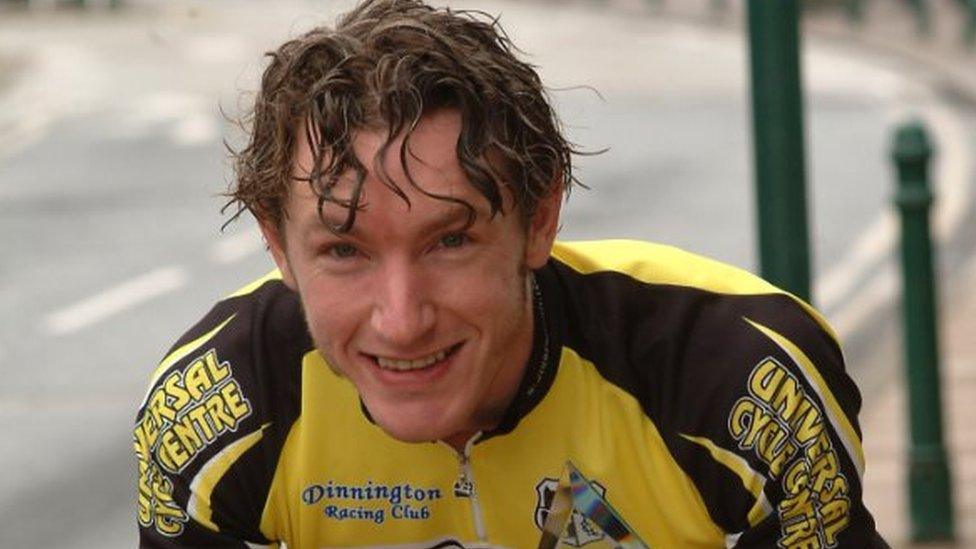
The now 44-year-old father-of-one, says: "All the problems started because people assumed I was intoxicated. I think the card is a great idea. You can work hard to raise awareness but you may not reach every police officer and that is where the ID card comes in.
"I want to be able to tell people rather than have them wondering what's wrong with me. It's just a better way of doing it."
The scheme has received support from the National Police Chiefs' Council, Police Scotland, the Police Service of Northern Ireland, Liaison and Diversion and the National Appropriate Adult Network.
Following his accident, Dominic returned to education and studied graphic design at college in Sheffield. It's where he also met his wife, Doreen, who comes from Germany and was on a 12-month work placement.
"She met me and liked me,' he says. "It is more difficult with a brain injury, but all it takes is just a bit more understanding."

For more Disability News, follow on Twitter, external and Facebook, external, and subscribe to the weekly podcast.
Related topics
- Published20 July 2017
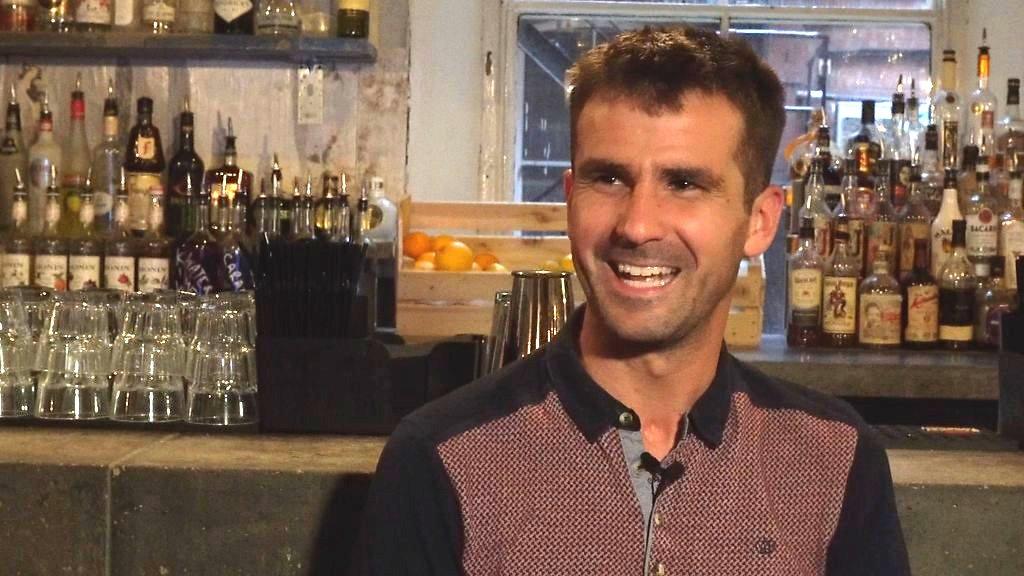
- Published7 December 2016
